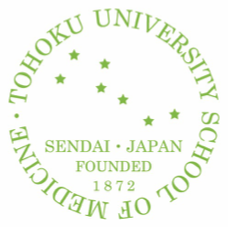Department of Redox Molecular Medicine,
Tohoku University Graduate School of Medicine
 東北大学大学院医学系研究科レドックス分子医学分野
東北大学大学院医学系研究科レドックス分子医学分野
Introduction
Laboratory Introduction
Reactive oxygen species (ROS) produced in excess in cells induces oxidative
stress and is involved in various diseases including infection and inflammation,
cancer, metabolic syndrome such as atherosclerosis and diabetes, and neurodegenerative
disorders like Alzheimer's disease. In recent years, ROS are recognized
as signaling molecules regulating various biological phenomena. ROS exerts
various physiological functions such as adaptive response to oxidative
stress, autophagy induction, and regulation of cell senescence and cell
death, via well-organized signaling pathways consisted with receptor molecules
and effector proteins. To clarify the regulation mechanism of ROS signaling
is a high-priority subject in research on the pathogenesis of oxidative
stress-related diseases. Our laboratory investigates the molecular mechanism
of infectious diseases as an environmental factor, toxicology of environmental
pollutants, and cellular responses to environmental and oxidative stress,
by using the advanced analytical techniques, such as chemical biology,
proteomes, metabolomes, etc. Recent progresses in our study include the
discoveries of the reactive sulfur species as new regulator of oxidative
stress and the promotion of atherosclerosis by the infection of emerging
pathogen Helicobacter cinaedi. Based on these high-impact achievements,
we are seeking to develop novel strategies of diagnosis, remedy, and prevention
for various diseases, in view of the defense mechanism in response to oxidative
stress.

information店舗情報
東北大学大学院医学系研究科
レドックス分子医学分野
〒980-8575
宮城県仙台市青葉区星陵町2-1
TEL.022-717-8164
FAX.022-717-8219
→アクセス
